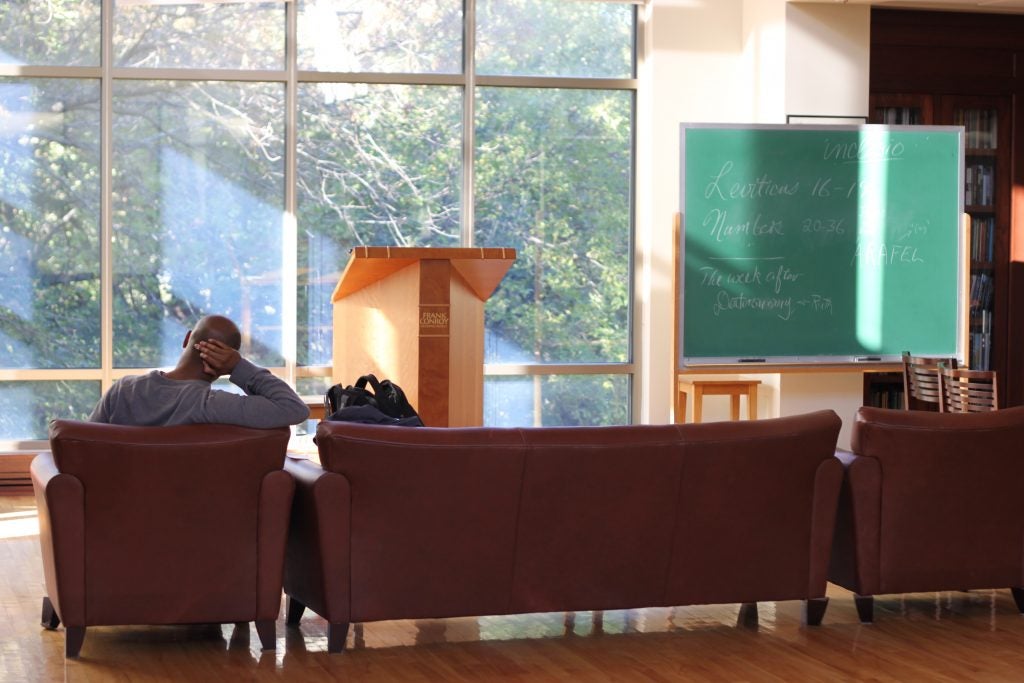Note: This post is a follow-up to “Inside the Iowa Writers’ Workshop: Part 1.”
Everyone knows the Iowa Writers’ Workshop is the most prestigious MFA Creative Writing program in the Whole Wide Universe (Editor: unverifiable fact), and the one that trashed Hannah Horvath’s story in Girls so bad she quit in just a few days.*
Here are six more things you need to know about the Workshop in case you’re thinking of applying, or want to pretend you’re an alumnus at an agent meeting, or find yourself on Jeopardy! with the Daily Double in the category of “Graduate-Level Creative Writing Programs.”
4. Autonomy
In some ways, the Iowa Writers’ Workshop feels like an intensive writers’ conference or residency that lasts for two years. There are no grades and no set curriculum. The only requirement is to take workshop (credit hours flexible from 1-6) and to enroll in twelve credit hours per semester. You can take craft seminars in fiction or poetry regardless of your genre, or take classes in other departments. Most seminars don’t check for attendance—it’s really up to you to decide when to come in. Some people show up for one class and never reappear. But as many people stick to the schedule and never miss a class.
The workshops take place in Dey House—aptly named, because it does feel like a bunch of writers just getting together at someone’s house to talk about writing. Officially, workshops are two hours long. But again, more like a conference or residency, the teachers have a lot of autonomy. My workshop with Charles D’Ambrosio usually lasts three hours. Once, we went up to four hours (in which I ran out of snacks and contemplated eating the manuscripts). Contrary to popular opinion, there’s no such thing as the “Iowa style” of writing. Each instructor may have a particular way of approaching craft or talking about craft, and some may be more prescriptive than others, but in most cases, they’re trying to help you achieve your original vision. Of course, they’re also not immune to subscribing to the predominant literary trend—which has been, and still is, leaning towards conventional realism.
Socially, you can be a hermit if you want to; lock yourself up in a room and just write for two years. No one’s probably going to miss you—there are no required events to attend except for the first day meeting. Even student readings are informal and optional. You can finally experiment on growing that beard thick, long, and covered in crumbs.
5. Evolution
In its own snail-paced way, the Iowa Writers’ Workshop is evolving, and some of the changes have to do with the following:
Seminars. I’ve heard that it used to be that craft seminars aren’t taken all that seriously by the instructors and students. Maybe it has to do with the preeminence of the workshop experience, that everything else falls into second place. But I’m finding the class on Short Story Forms by Margot Livesey, and the class on the Long Story by Ethan Canin (which is really taught workshop-style) to be rigorous and profoundly meaningful to my understanding of writing. Craft seminars usually focus on studying published pieces, and they are a great complement to workshops, which by its nature focus on reading works-in-progress. Because the seminars are also open to any graduate students (with some prioritization), the classes tend to have more cross-discipline opportunities as well.
Novel. Perhaps as a response to student demand, or literary trends, there seems to be more opportunities to workshop novels in particular. So far, I believe, there’s been a class devoted to the novel every semester. Paul Harding (a fairly regular visiting writer) has been teaching it recently, and Lan Samantha Chang is also known to teach her own version. These are intensive workshops that require reading over 150+ pages of a student’s work each week.
Diversity. Compared to the time when Sandra Cisneros attended the IWW (and famously ranted against it), the Workshop has made considerable progress. There seems to be a more diverse cohort now—ethnicity, national origin, gender, age, etc.—that makes for a more welcoming and better learning environment overall.
6. Bikes, Yikes!
In the episode of Girls where Hannah Horvath briefly enrolled at the Iowa Writers’ Workshop, a friend told her she didn’t need to lock her bike because, well, it’s Iowa. But Hannah’s bike was stolen. There are few things that Girls got right about the IWW and Iowa experience—but I can confirm that bicycles indeed do get stolen here. I lost mine in the first month, while parked (and locked) outside my house. So for those bike-enthusiasts thinking of applying to the program, caveat emptor. Get a cheap bike or learn the valuable lesson of letting go.
*Note: The author is currently in the first year of the fiction program at the Iowa Writers’ Workshop, it being his second MFA.








